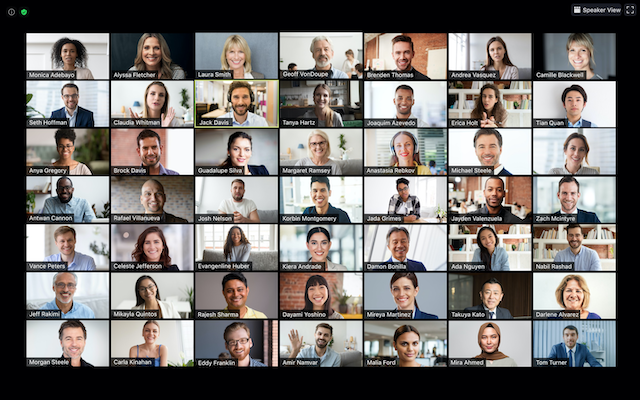As we head into another bout of pandemic-filled headlines and headaches, the COVID-19 virus is not the only thing that has mutated. Agencies across Australia are suffering from a new strain of disingenuous self-promotion that’s threatening to send potential clients running for the hills: trying to sound bigger than they really are.
Since when did buying a domain name become ‘opening your doors’? When did it become acceptable to use interns as a bulking agent in the office team photo, when they’re most likely still banned from the weekly team WIP? Then there are the WeWork desks pretending to be bonafide offices, the exaggerated self-appointed titles, the staged social media photos that are symptomatic of the magpie effect, and the confusing ‘client work’ pages that are really just filled with jobs completed while at a previous employer.
Veiled attempts from small agencies at appearing bigger than they really are sit in direct contrast with the values of honesty and transparency that were most likely championed when the agency first opened its doors.
It is time to face the facts. We remain in a global pandemic, no matter how much we’d like to pretend that the storm has passed. Budgets have been hacked, clients have left or been put on indefinite pause, and teams have been forced to downsize.
In many cases, agencies have rightly recognised the huge financial benefits of closing their bricks and mortar sites and operating remotely on a permanent basis. The pandemic has been a great leveller. Businesses and budgets large and small are all growing accustomed to Zoom meetings taking place at home with children whizzing past, doorbells ringing, and dogs barking.
So why pretend otherwise? Why pretend that you are performing better than ever when the industry is rumbling with rumours of lapsed client relationships and unpaid office bills?
No one is requiring you to stage a shared office space in your spare bedroom to look like you still ‘own the floor’. You aren’t fooling anyone. It is OK to admit that you are operating differently, smaller and more neatly than before. You are not admitting defeat, you are simply adapting. Your clients are adapting too, and therefore won’t judge you for doing the same – in fact, they’ll no doubt appreciate the camaraderie that comes with facing a shared challenge.
As WFH continues to rule supreme, previous assumptions and stereotypes about slacking off and endless nap breaks are proving false. In most cases, productivity as a result of remote working is through the roof and clients are already seeing the results, both within their own businesses and within their agency partners.
Being flexible, acclimatising and communicating with complete transparency are the core values of any communications organisation. If you can’t practice what you preach, then you can’t expect your clients to stick around and follow your lead.
Plus, there’s a reason why your clients decided to opt for a small agency over a large one. Often, small boutique businesses are selected because it’s assumed that their small size equates to a team of dedicated specialists who are highly skilled in a particular area, rather than a large group of generalists who might struggle to give a personalised, tailored service all while charging like a law firm.
Ultimately, when it comes to marketing themselves, agencies must work hard to stay ‘true to size’. It’s easy to fall into the trap of big words and big promises, without realising that if clients wanted a big agency, they wouldn’t have selected your small business in the first place.
Clients are already starting to realise that size doesn’t matter; it’s time agencies embraced the same ethos. There’s nothing wrong with aiming for big results, but in my experience, results have nothing to do with how many staff members you have or how big your ping pong table is.
As Walt Disney once (apparently) said: “The more you are like yourself, the less you are like anyone else which makes you unique.” Don’t make your image about size, make it about the value you can add.

